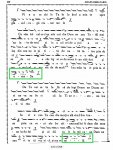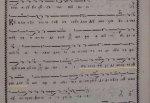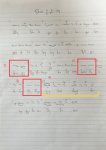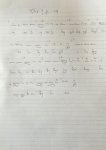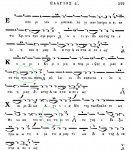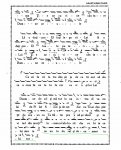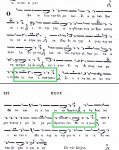I have begun this new thread to answer Samuel's question in another thread, which was:
I put quotation marks around the word "mistakes" because whether or not they are inherently wrong is a rather subjective matter.
To answer your second question, so far it has usually been quite obvious when a Slavonic formula improperly emphasizes a syllable. When it isn't obvious, all I need to do is compare it with the Greek formulas, and then I can see whether or not the Slavonic formula has a mistake. If you examine the notes highlighted in yellow, you will see what I mean.
I have already decided to include formulas also from Romanian sources because Romanian compositions from the 19th century (and earlier) follow the Greek formulaic rules very closely. I hesitate, however, to include formulas from Arabic sources because if they don't follow the Greek rules closely, there might be too much "chaff" to go through before finding any "wheat". Hopefully someone can tell me how worthwhile collecting Arabic formulas would be.
In the formulas I have collected for papadic first mode (to see them, click on the corresponding link in this webpage), so far I have included formulas from Greek and Slavonic sources. If you examine the Slavonic sources (which I have written with grey notes), you will notice that there are basically two kinds of "mistakes":How do you decide on whether to use a foreign language source? Do you ever run into problems of just improper emphasis? How do you discern between improper emphasis and a new formula?
1) The melodic emphasis does not match the textual accent. In other words, the melody either emphasizes an unaccented syllable or doesn't emphasize an accented syllable enough. I highlighted these mistakes in yellow.
2) The Slavonic version of a formula has either too many or too few syllables in comparison with the paradigm set by Greek versions of the same formulas. I highlighted these mistakes in green.
So by highlighting these "mistakes" and writing the notes in grey, I can safely include any Slavonic source (or a source from any language, for that matter) without worrying about compromising the quality of my compilation, since people can clearly see what the "mistakes" are, and they can choose to avoid using such formulas (and come up with a better formula, if they can). If they can't come up with a better formula, then they can at least use those formulas with "mistakes".2) The Slavonic version of a formula has either too many or too few syllables in comparison with the paradigm set by Greek versions of the same formulas. I highlighted these mistakes in green.
I put quotation marks around the word "mistakes" because whether or not they are inherently wrong is a rather subjective matter.
To answer your second question, so far it has usually been quite obvious when a Slavonic formula improperly emphasizes a syllable. When it isn't obvious, all I need to do is compare it with the Greek formulas, and then I can see whether or not the Slavonic formula has a mistake. If you examine the notes highlighted in yellow, you will see what I mean.
I have already decided to include formulas also from Romanian sources because Romanian compositions from the 19th century (and earlier) follow the Greek formulaic rules very closely. I hesitate, however, to include formulas from Arabic sources because if they don't follow the Greek rules closely, there might be too much "chaff" to go through before finding any "wheat". Hopefully someone can tell me how worthwhile collecting Arabic formulas would be.

